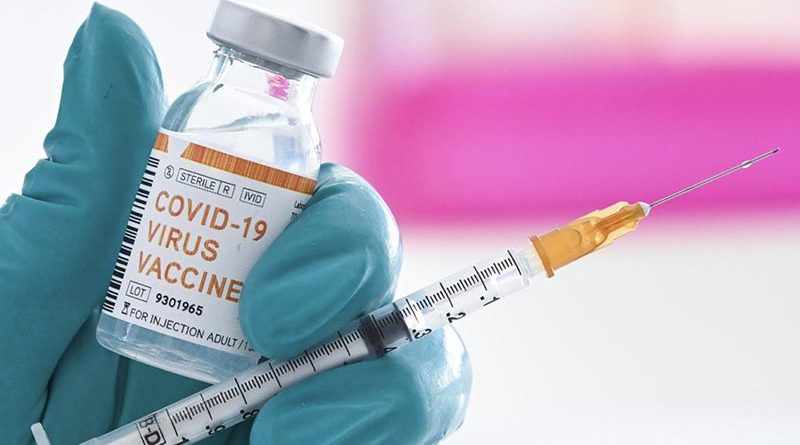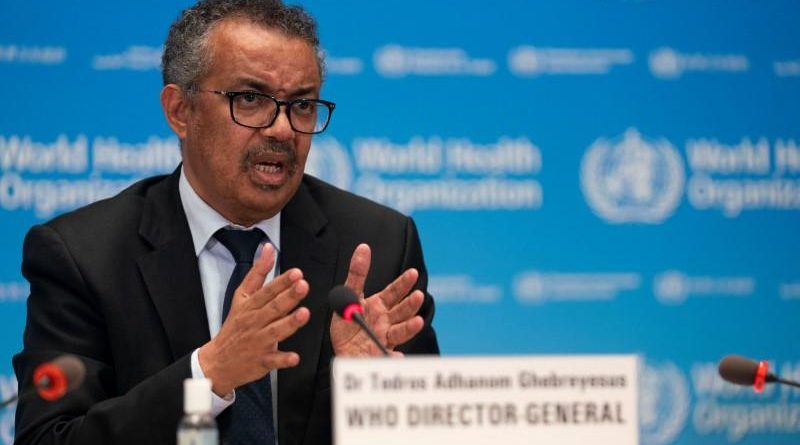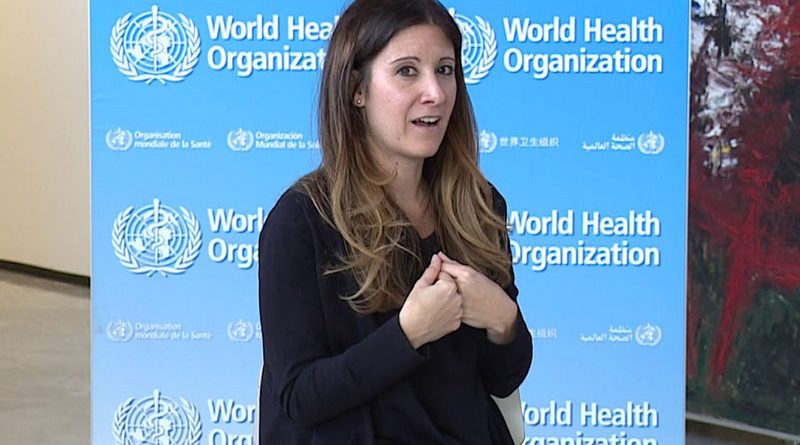THE promise of COVID-19 vaccines is “phenomenal” and “potentially game-changing”, Hans Kluge, the World Health Organization’s regional director for Europe, told a briefing.
Speaking from Copenhagen, he said supplies were expected to be very limited in the early stages and countries must decide who gets priority, though the WHO said there is “growing consensus” that first recipients should be older people, medical workers and people with co-morbidities.
Britain approved Pfizer Inc’s COVID-19 vaccine on Wednesday, jumping ahead of the rest of the world in the race to begin the most crucial mass inoculation programme in history.
Prime Minister Boris Johnson touted the green light from Britain’s medicine authority as a global win though he recognised the logistical challenges of vaccinating an entire country of 67 million.
U.S. and EU regulators are sifting through the same Pfizer vaccine trial data, but have yet to give their approval.
The WHO said on Wednesday it had received data from Pfizer and BioNTech on the vaccine and was reviewing it for “possible listing for emergency use”, a benchmark for countries to authorise national use.
Source – Thomson Reuters Foundation.
AMGEN Inc, UCB SA and Takeda Pharmaceuticals Inc have launched a global trial to identify whether any of three different drugs can reduce the severity of COVID-19 in hospitalized patients by moderating the immune system’s response to the disease.
The drugmakers are part of the COVID Research & Development Alliance, a group of more than 20 pharmaceutical and biotechnology companies cooperating to speed development of therapies for the disease that has killed more than 1.4 million people worldwide.
The study initially will test whether Amgen’s psoriasis drug Otezla, Takeda’s experimental anti-inflammatory lanadelumab, and UCB’s experimental immune system-inhibitor zilucoplan can prevent the body’s own defences from overreacting to the coronavirus, which can lead to serious, sometimes fatal, tissue and organ damage.
The three compounds “have a plausible biologic rationale in terms of the effect on immune response or the hyper-immune response that some people develop,” said Amgen research chief David Reese.
“We hope to find options that could potentially save lives … before the widespread availability of a vaccine,” he said.
Health experts do not expect vaccines to be available to most people until well into 2021. Meanwhile, COVID-19 hospitalizations are at record levels in the United States, threatening to overwhelm health systems.
The multiple candidates will be tested against a placebo with all trial patients also receiving standard care. Other drugs that work in a variety of ways, including antivirals, medicines that also modulate the immune response and vascular agents may enter the study in coming months.
So far, only a generic class of steroids used since the 1960s to reduce inflammation in diseases such as arthritis has been shown in a controlled study to improve survival for severely ill hospitalized COVID-19 patients. Steroids are not recommended for patients with less severe illness.
The COVID R&D trial will enrol both hospitalized intensive care unit and non-ICU patients.
In anticipation of a rise and fall of COVID-19 cases in various geographic regions, the trial will include sites in the United States, Brazil, Mexico, Russia, South Africa and other countries.
“COVID is not confined to one country … We have included a broad range of different countries,” said Dhavalkumar Patel, UCB’s chief scientific officer.
Source – Thomson Reuters Foundation.
THE world risked future pandemics if it suffered “amnesia” and did not learn from the current coronavirus crisis, a World Health Organization’s top emergency expert has warned.
“I have seen the amnesia that seems to descend upon the world after a traumatic event, and that’s understandable,” Mike Ryan told a briefing in Geneva.
“But if we do this again like we did after SARS, like we did after H5N1, as we did after H1N1 pandemic if we continue to ignore the realities of what emerging and dangerous pathogens can do to our civilization, then we are likely to experience the same or worse again within our lifetimes,” he said.
Ryan also took a swipe at developed nations, saying that northern countries had been running healthcare systems “like low-cost airlines” and that the world was paying for that now.
“In the north, because of the cost model for health systems, we have designed our health systems to be delivered at 95%, 98%, at 100% efficiency. It’s almost like a low-cost airline model for health service delivery,” he said.
“Well, we’re paying a price for that now, not having that extra-surge capacity built into the system — seeing health as a cost centre in our economy, seeing health as a drain on development, as dragging back the economy, and we need to re-address what that means.”
WHO Director-General Tedros Adhanom Ghebreyesus also urged countries not to politicize the hunt for the origins of the new coronavirus, saying that would only create barriers to learning the truth.
“We need to know the origin of this virus because it can help us to prevent future outbreaks,” Tedros said.
“There is nothing to hide. We want to know the origin, and that’s it.”
U.S. President Donald Trump’s administration, which has accused China of hiding the extent of the outbreak and the Geneva-based global health body of being too close to Beijing, has criticised the terms of a WHO-led international investigation into the origin of the pandemic.
Chinese state media have said the virus existed abroad before it was discovered in the central Chinese city of Wuhan, citing the presence of coronavirus on imported frozen food packaging and scientific papers saying it had been circulating in Europe last year.
Source – Thomson Reuters Foundation.
EVEN if countries see a fall in coronavirus cases, they need to stay vigilant, Maria Van Kerkhove, the World Health Organization’s technical lead for COVID-19, has warned.
“What we don’t want to see is situations where you are moving from lockdown to bringing (the virus) under control to another lockdown,” she told a virtual briefing in Geneva.
Nearly 61 million people have been reported to be infected by the coronavirus globally and 1.4 million have died, according to a Reuters tally.
“It is in our power to keep transmission low,” she said. “We have seen dozens of countries show us that it can be brought under control and kept under control.”
Source – Thomson Reuters Foundation.




